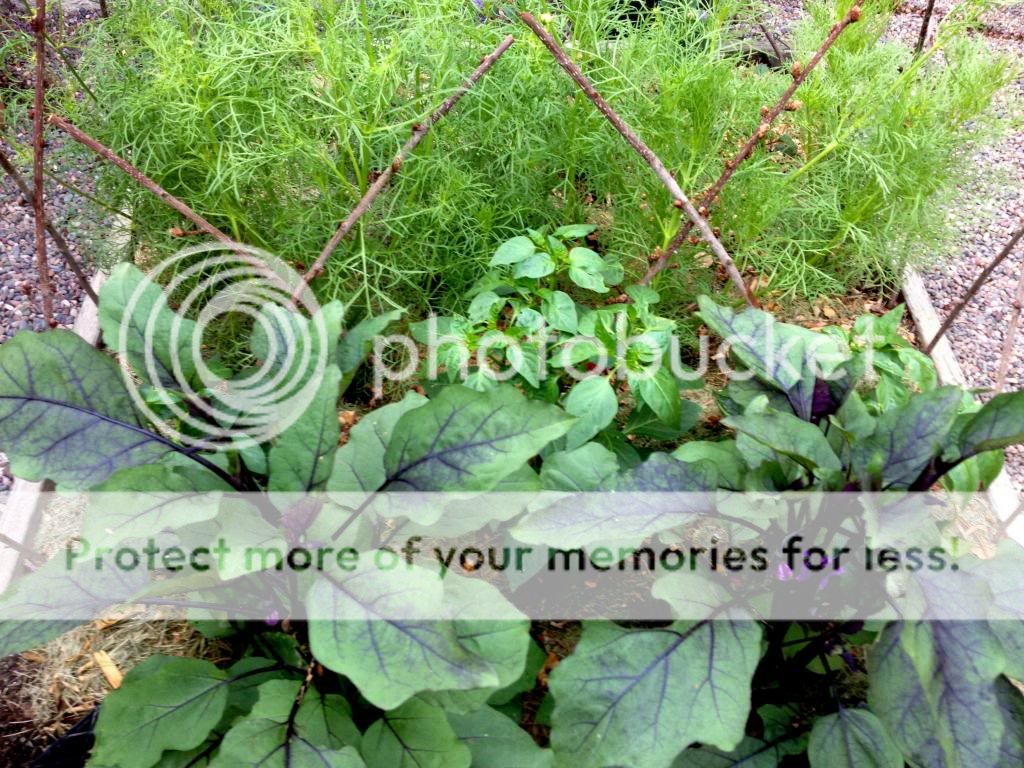July 12, 2013
My Saturday in the garden changed after reading this article by Barbara Pleasant in Mother Earth News. The delightful illustration hints at some of her mulching methods.

Illustration by Elayne Sears in Mother Earth News
This is one of my raised beds about two weeks after transplanting the eggplant, peppers and flowers. The asters and cosmos are favorites and attract beneficial insects to the garden.

Without mulch and during some warm weather, the plants required daily watering to prevent wilting and to ensure their survival. The soil dried out quickly.
I hesitate to use the city-produced mulch on my vegetable garden. I’ll be eating what makes it’s way from curbside collection of yard waste to my vegetable beds. More compost seems extravagant and adds extra nitrogen and nutrients that my plants don’t really need.
The best vegetable garden mulches are those that your property produces itself, such as grass clippings, leaves and compost made by combining kitchen and garden wastes. Grass clippings are particularly useful because they contain abundant nitrogen and other nutrients, which feed both soil life and plants.

Here’s the same bed (from another angle) with grass mulch and some leaves two weeks later. One week’s mowing was enough to mulch this bed. I’ve since added a second layer. The grass forms a loose cover that allows air and water to penetrate easily. Even though the plants’ water needs are higher now and the days are warm, I’m watering less.
These grass clippings are from my tall fescue lawn, which is fertilized organically and is relatively weed-free. I wouldn’t use Bermuda and Zoysia grass clippings, having seen these grasses take hold in the garden when used for mulch.

And here’s the same raised bed two weeks after the last picture
Look around your yard. What do you generate that could be used for mulch? Stash fallen leaves or pine needles for use as mulch or chop ornamental grass trimmings to cover the soil.
Read Barbara’s article for more ideas on weed suppression, choosing a mulch and the benefits of mulching your vegetable garden.
